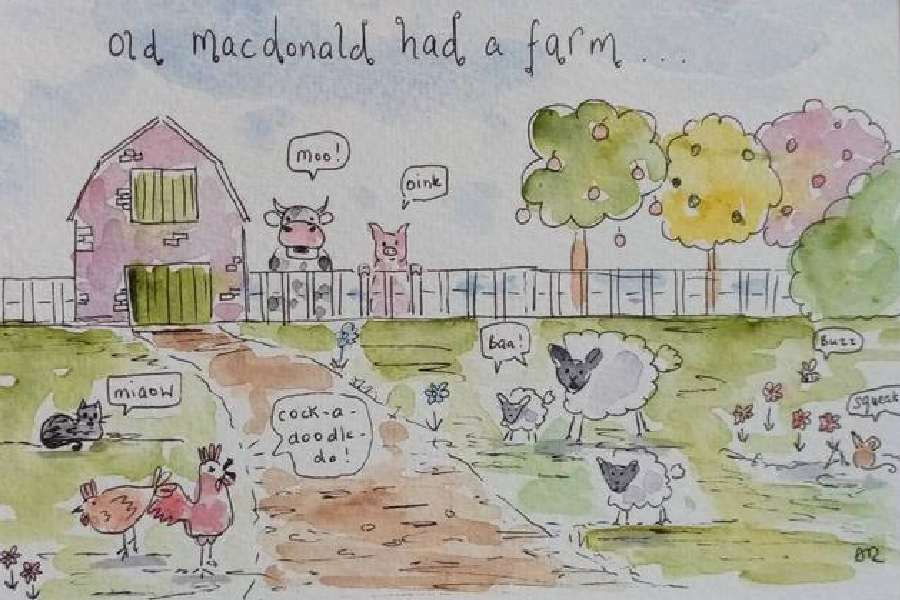Old MacDonald had a farm, and on that farm he took his own life after failing to pay back his farm loans. That is the message that a film-maker is trying to disseminate through his documentary, Déjà vu, which was screened in Calcutta recently. The documentary, which examines the disastrous transitions in the agrarian sector of the United States of America, makes innovative use of “Old MacDonald”, the popular nursery rhyme, to dismantle the idyllic image associated with farm life. While this may seem like a grim turn for a nursery rhyme, the truth is that the world illuminated by nursery rhymes can be a lot darker than adults think. Nursery rhymes can thus serve as the proverbial stepping stones for children to enter the adult — real — world of contagion, plague, mishaps, social inequality, political intrigue and execution.
The subversive element embedded in such verse would boggle the mind. Many a child has fallen asleep to a rhyming lullaby about a baby who, strangely enough, has been left on a treetop and is in perpetual danger of a fatal fall with every breath of wind. Research suggests that the baby in question was the son of the Catholic king, James II, and the lullaby was, horror of horrors, a death wish for his son so that England could remain Protestant. Elsewhere, a poor black sheep has to give up all his wool to the king and the church — an allusion to the exploitation of English farmers by both Church and State. Then again, the rhyme about two people falling down a hill under mysterious circumstances is really about France’s Louis XVI and his wife, Marie Antoinette, whose heads were sent rolling by the guillotine. Similarly, “Ring-a-ring a rosy” glances at the plague, “Humpty Dumpty” pokes fun at the deposition of Charles I from power, while “Three Blind Mice” bares the horror of religious execution. It is not as if the Anglophone world has had a monopoly on deceptive verse that mixes, quite wonderfully, fact with fiction. The soothing tones of “Chhele ghumalo para juralo/ borgi elo deshe/” echoes the anxiety associated with the historically documented pillage of Bengal’s countryside by Maratha forces.
Little wonder then that polities have found reason to frown at rhymes. The Victorians founded the British Society for Nursery Rhyme Reform to clean up the canon of seemingly innocuous verse. Even in this day and age, attempts are being made to sanitise literary works for children. Bowdlerisation has scalped, among others, Roald Dahl; who is to say that nursery rhymes will not be next? Mercifully, nursery rhymes seem to have been imbued with the necessary resilience to survive across time and culture scapes. This is just as well because these verses, with their ingenious inversions, supple imagination and clever allegory, form an important rite of passage for children to make sense of the grey world of grown-ups.











